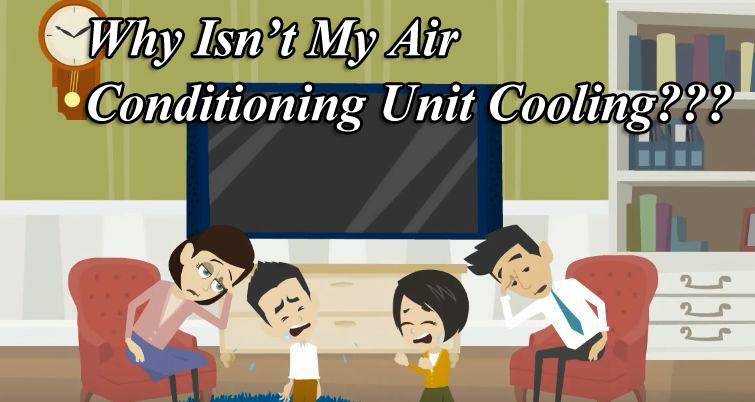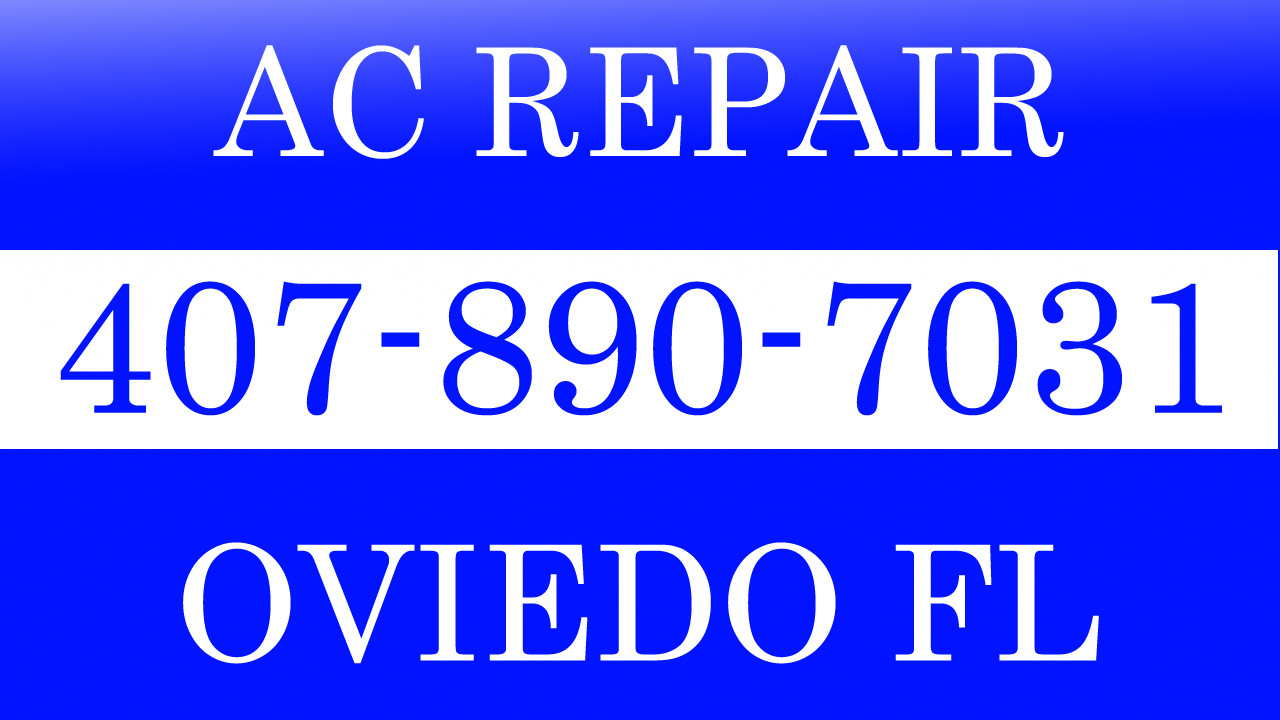If the air conditioning system in is not cooling down your home as much as you would like, the best way to diagnose the problem would be to contact a professional. However, you need to have a basic understanding of how your air conditioning system operates so that you can troubleshoot this issue before you call in a professional.
Air Conditioner Operation Basics
Air conditioning systems operate using a similar basic principle. The condenser, evaporator, and compressor all work in unison to extract heat from the air in your house then recirculate cooled air back into the house through a system of ducts.
Evaporator coils situated in the portion of the air conditioning system that indoors absorbs the heat pulled into the system using refrigerant. Cool air flows back into the house through vents and ducts. The heat turns the refrigerant into a gas, which travels to the condenser coil found outside the house where it is condensed back into a liquid by the compressor. The heat is extracted from the refrigerant so that it can be released outside the house. A freshly cooled refrigerant is then forced back inside where the cycle starts once again.
Air Conditioning Unit Not Cooling?
AC units can fail to cool your home for a variety of reasons. The following is a discussion of the most common reasons why this may happen:
1. Thermostat Settings and Status
The firsts step in diagnosing the problem with your air conditioning unit is to check your thermostat. One of the easiest things you can do is check whether the thermostat settings have been changed accidentally.
Your thermostat should be set to the “auto” setting as opposed to the “on” setting. If it is set to “on”, the fan continues blowing even after the air conditioner cycles off, which circulates air throughout the home but does nothing to lower the temperature. It also tends to consume more energy, which can lead to higher utility bills.
A faulty thermostat could be the source of your problems. If you have confirmed that the thermostat settings are proper, you should check whether your thermostat is faulty/malfunctioning. If it is faulty or you don’t know how to check whether it is faulty, you should hire a professional to check it or replace it.
2. No Power
If your thermostat is not at fault, you should check the power. You might think that it is a no-brainer, but it is possible that your air conditioner is not receiving any power. To check the power source, find the fuse panel then check whether the fuse or circuit breaker has tripped or blown.
A blown fuse is something you can replace using a fuse with similar amperage. If your circuit breaker is at fault, reset it then check whether it improves the air quality. If the A/C system still experiences the same issues, the problem could be electrical that requires an experienced professional.
3. Faulty Ductwork
One of the most important components of the air conditioning system is the ductwork. The ductwork delivers cooled or heated air that the furnace or air conditioner produces throughout the home. Poorly designed, bent or cracked ductwork translates to poor delivery of the cooled air that your conditioning unit produces, which means that your house won’t be cooled properly. Faulty ductwork can be identified and repaired by conducting a thorough inspection of the ductwork and sealing it properly.
4. Obstructed Outdoor Unit
If the ductwork is not at fault, then you should check the outdoor unit. The outdoor unit is one of the most neglected components of air-conditioning systems. Keeping the outdoor unit clean is just as important as ensuring that the indoor filter is clean. The condenser can’t function properly when dirty.
The first thing you should do is cut any grass or weeds that have grown around the unit. You should also rinse the outside unit periodically. However, ensure that you never spray the unit too hard since you risk damaging the fins, which is yet another problem. Once you clean the unit, use your hands to remove any leftover debris.
5. Dirty Air Filter
Unrestricted air flow is necessary for the proper functioning of your air conditioner. If the air filter is clogged with debris and dirt, there will be a restriction of the air flow to the air conditioner. Eventually, the condenser may freeze up. It is recommended that you change your air filters every 1 to 3 months.
You should note that some high-efficiency air filters are designed to remove very small particles from the air resulting in a similar problem. The filter material in such filters is so tightly woven and thick that it restricts the flow of air just like a dirty filter does. When choosing a replacement filter for your air conditioner, ensure that you follow the recommendations of the manufacturer.
6. Overflowing Drain Pans
AC units are usually equipped with drain pans located underneath the AC coils. The role of these drain pans is to catch any condensation from your unit. You need to check the drain pan’s piping to make sure that it is free of debris that can cause a blockage. If a blockage does occur, your air conditioner will not function optimally. You need to check your drain pans for overflow and ensure that no blockages are present.
7. Low Refrigerant Levels
Air conditioners should theoretically never lose refrigerant because it is contained in a closed system. However, the reality is that wear and tear sometimes cause some components to weaken or loosen, which leads to a loss of coolant. If the air conditioner is either low or does not have refrigerant, it will be unable to cool the warm air and your home. Low refrigerant levels also sometimes cause a reduction in pressure that can lead to freezing of your air conditioning system. Replacing the refrigerant is not a DIY job but requires professional assistance.
8. Defective Components
Various mechanical problems can cause the air conditioner to blow only warm air. This is usually the case with older A/C units. The most common mechanical malfunctions involve the compressor and condenser.
The condenser is the portion of the air conditioner responsible for removing heat from the air. If functioning properly, it blows warm air to the outside then returns cool air into the home. The function of the compressor is to take cool air from the condenser then push it into the vents and ductwork in the home.
9. Extreme Temperatures
Global temperatures have been on the rise over the past several decades, and they have been nightmarish for air conditioning systems. Air conditioning systems are designed to work optimally up to particular temperatures. If the outside temperature is way above this optimal limit, the efficiency of the air conditioning system will decrease.
10. Undersized Air Conditioning System
Air conditioning systems are designed to cool areas of up to a particular size. Simply put, a small air conditioner cannot cool a large room properly. This is why you need to take the size of the room/area to be cooled into consideration before you go for the lowest size and cheapest air conditioner. A professional can help you choose the most appropriate A/C system for your space.
11. Electrical Issues
The performance of your AC system can be affected by various electrical issues. Some of the most common electrical issues include:
- Corroded Contacts or Connectors
- Broken or Shorted Wires
- Defective Breaks
- Malfunctioning Thermostats
- Failed Sensors
When Should You Call an A/C Repair Professional?
If you have ensured that nothing is obstructing the air flow around the outdoor unit, checked the power, ductwork, and drain pan replaced your filter, checked your thermostat, but the air conditioning system is still not functioning properly, it is now time to call an air conditioning professional.
It is advisable that you never try to diagnose or repair an electrical, mechanical, or refrigerant leak on your own. Doing this may pose a serious safety risk, void your manufacturer’s warranty, or even cause further damage to your system.
The Bottom Line
Your air conditioning unit may not be cooling your home effectively due to a variety of reasons that have been discussed here. Now that you know why your A/C is not cooling your home properly, you can now make better judgments regarding the most appropriate course of action.
The best way to ensure that your air conditioner functions optimally is to schedule a tune-up with a qualified service. You should ideally schedule annual maintenance for your system to check for potential problems before they escalate and correct the problems that have already emerged.
When choosing a company to do the AC maintenance or repair work, you need to ensure that you only choose a company with positive reviews, is properly and duly insured, and uses only licensed professionals. You can determine all this by checking the reviews of the company online.


